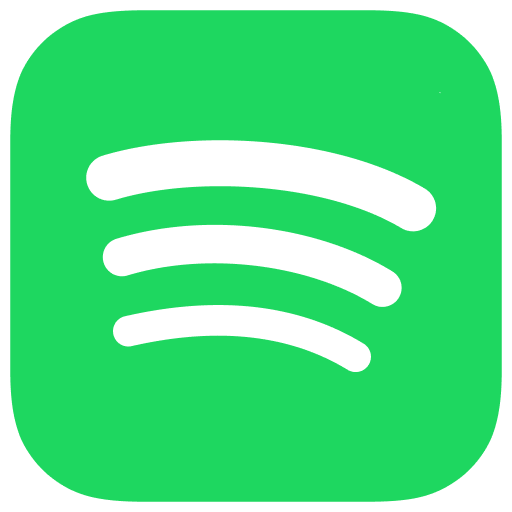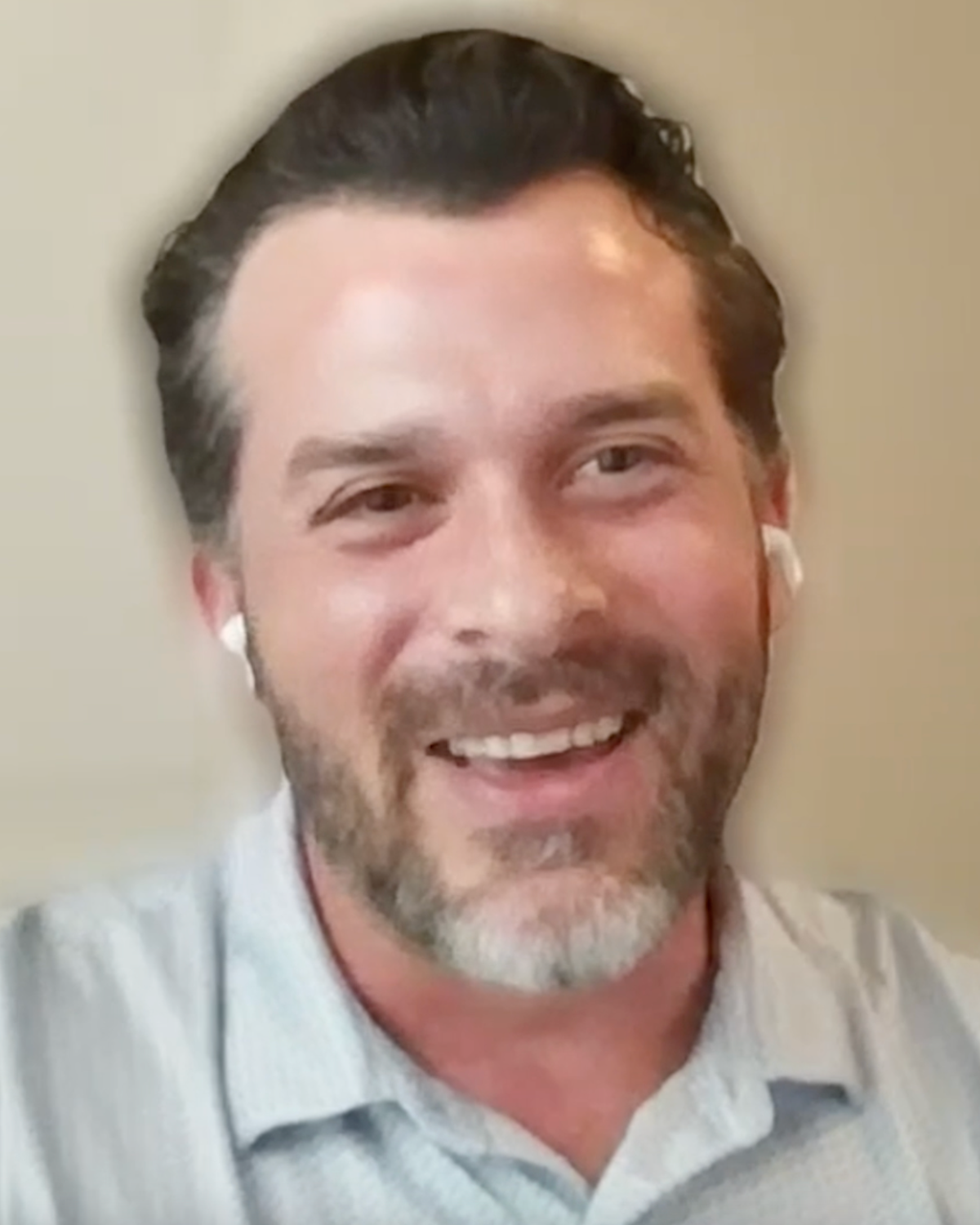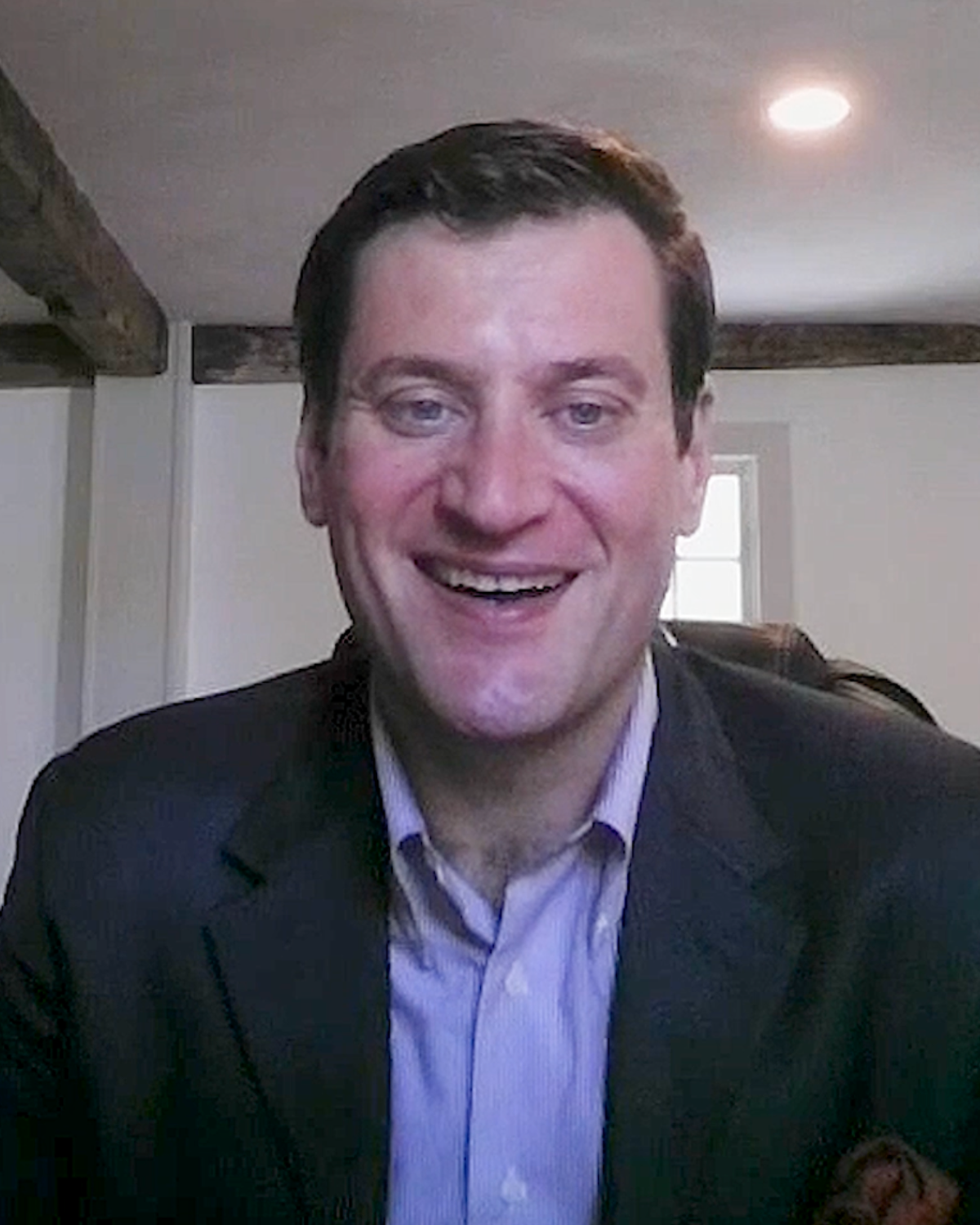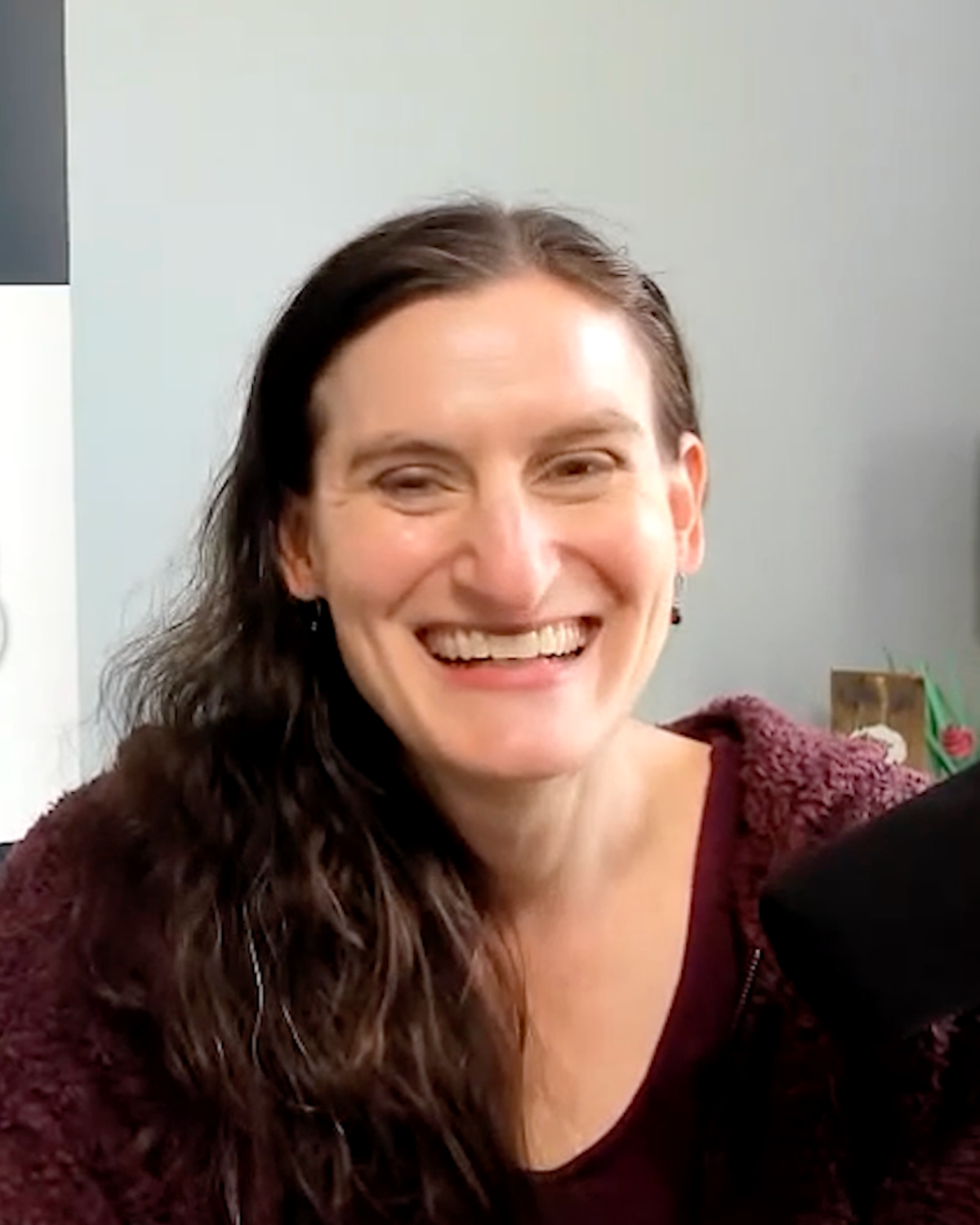Episode 07: Leveraging Technology and Creating Value in MedTech Digital Marketing
Hosted by Aaron Burnett with Special Guest Monique Trulson
Hear from Monique Trulson, Senior Director of Global Digital Marketing at Insulet, as she shares her fascinating journey from meteorologist to digital marketing leader in the MedTech industry. Monique discusses the remarkable evolution of digital marketing, the challenges of balancing privacy and the role of compliance with personalization, and the importance of empathy in connecting with audiences. She emphasizes the significance of adapting to change, continuously learning, and finding meaning in one’s work.
Monique also highlights the power of leveraging technology to create value and human connections with less data, particularly in the context of MedTech marketing. Throughout the conversation, Monique’s passion for her work and her commitment to making a positive impact shine through, offering valuable insights for marketers and business leaders alike.
Listen & Subscribe:
Welcome to the Digital Clinic, the podcast that goes deep on critical digital marketing trends, strategies, and tactics for the healthcare and medical device industries. Each episode brings you expert guests sharing the knowledge, insights, and advice that healthcare marketers need to be successful in this complex and rapidly evolving digital landscape.
Aaron: Joining me today is Monique Trulson, who is Senior Director of Global Digital Marketing at Insulet. Monique, thanks very much for being with me.
Monique: Hi, thank you. I’m so glad you invited me.
From Meteorologist to Digital Marketer
Aaron: Tell me a little bit about your professional background, your professional history, and how starting as a meteorologist led to a remarkable career as a digital marketer.
Monique: Absolutely. I wanted to be a meteorologist since I was in second grade and I was afraid of the weather. My dad told me if I learned how it worked, I wouldn’t be scared anymore. I graduated from Plymouth State College in New Hampshire with a degree in Meteorology and immediately after graduation, I went to work as a meteorologist. I had done the TV thing; I didn’t want to be on television. I interned at a channel and so on. I wanted to do the behind the scenes stuff. I was much more comfortable there. I did that for six years, working in the Meteorological Operations department, where we actually had giant satellite dishes out in the parking lot. We ingested all of that – we had a satellite ground station. I’m a nerd, I learned how to type how to code BASIC on my Atari 800 when I was a kid, and then I learned all of the coding for the satellite ground station and started helping make the satellite images and so on.
Dover was my next big one. Dover Saddlery, another equestrian ecommerce company. They had three different websites at the time. That one was my longest that I’ve been at so far, and I loved it there. We did so much. We did multiple redesigns. We started working with a great company called Wheelhouse where they took us to the next level in terms of digital strategy, dealing with some really heavy technical stuff. I did a big project there, that was something I loved. It was working to personalize the website using the data that we had from either people coming to our stores, getting our catalogues, or coming online, and literally personalizing the website. Once we got to know you, we would take a look at what style of writing did you like, what brands do you prefer, what part of the country are you in? We would take that data and start to really personalize what you see on the website because every type of writing – they all use a saddle and they all have a helmet – each one thinks the other ones look a little silly, so we wanted to use that. That really helped us with conversion rates and we got better orders and so on. So that was really fantastic.
Aaron: The personalization work that you were doing at that time must have been so cutting edge.
Monique: Yes, it was then, and it was interesting because we were using Tealium to do all of that, and so I feel like that was very cutting edge. We got a lot of attention for that. It was really cool too to kind of pull in my meteorological stuff there to the point where we were personalizing stuff based on the region that you’re in. Right now, it’s chilly at times here in New England, but if you’re down in Texas, it’s hot already. Knowing where you were, we could then personalize the ads that we were showing you on the website.
Evolution of Digital Marketing
Aaron: What are some of the most interesting changes in digital marketing you’ve seen throughout your career?
Monique: Google Analytics coming along and all the others – I’ve worked with other big ones too, the big analytics platforms. Just having that for me was such a groundbreaking thing, and it’s something that I still can’t walk away from. I have teams that help me with stuff, but I tell you that every single morning I come in and I take a look at the reporting. I take a look at how we’re doing against budget and how are we doing against our forecasts because I need to see every single day where we’re going. I definitely feel like one of the biggest things for us, is the change in the amount of data and the ways that we can visualize it. That’s a huge thing for me, and I love every part of that. The ability to look at audiences and try to figure out how to talk to them and so on. It all does come down to how are they on our website? Where are they going? What are they doing? Do we have the content that they need? Do we have the experience that they’re looking for?
So many places that I’ve worked at, it’s always been close it. Close it, close it, close it. To now be in the MedTech space here, it’s very different. My team here is always saying, “They’re not ready to get married yet, but all we’re offering is a proposal.” So, we need to look at how can we take them along on the journey? How can we make them feel better? How can we show them how we can support them and help? The tools that are available, not just for me to use to market to people, but for people to be able to go online, that’s another thing that’s just so amazing to me. I remember the first time I could look on my phone and see a website, even though it was a flip phone. Nowadays, you’re carrying around these computers, and it just blows my mind how much that has opened up the online space for people that are older or don’t have these types of technologies available that easily. I feel like there’s so much more now to make the world smaller. That was a big thing when my kids were young, who are now 30 and 32, was letting them on the web. It’s like, well yes, monitored, they’re never alone, but at the same time, I feel like it makes the world a smaller place because you’re getting to know people without them being face to face, without you already having preconceived notions that we all have. You take a look at someone and immediately you’re thinking things, but when you’re just talking on discussion boards and so on, there’s that sense, there’s a kindness.
Aaron: Yeah, I do think that that what you’re describing is true. There can be kindness and there can be openness in just a digital connection. You can learn about people in a way that overcomes or protects against our biases. Digital connections can be a way to engage and communicate without interference from our biases. I certainly hope and pray and believe that those people who are negative or corrosive are a vocal but small minority getting a disproportionate amount of attention.
Monique: Absolutely. What I loved, back five to ten years, was the ability to reach people without them knowing that they wanted us to reach them. Nowadays that’s considered creepy, and I can completely understand that. But at the same time, I feel like to me that was just added a challenge. Now the challenge was how to reach out to these people to make it not creepy. Try to understand the psychology behind things and how can we make this be more relationship marketing as opposed to “buy my stuff” marketing, and I love that part too. I think that allows us to really connect in different ways. We use a lot of that information in terms of customer journeys.
Future of Digital Marketing
Aaron: What are you seeing as the future of digital marketing? Where are we headed, particularly for the medical device industry?
Monique: We’re at a point right now, where there’s almost a conundrum. It’s a paradox. Data privacy is huge. Here, data privacy, we live and breathe it. It’s so key to everything that we do, is to give someone a good experience without treading on areas where we shouldn’t go, where we shouldn’t be. We don’t have any place in that. The paradox being people want their data private, even outside of healthcare, it’s more important in healthcare, for sure. But even outside of health care, people don’t want to be tracked. They don’t want to share. They’re willing to almost do a type of a trade off, “What experience are you going to give me?” and then I’ll give you this information. The paradox is they don’t want to share, but they’re now expecting more personalization than ever. They want to get the advertising. That’s something they might want. I hear it all the time. I hear family members say, “I’m not interested in that, but I want to get emails from this.” Well, okay. “But wait, I’m turning off all my cookies.” Okay. So, I try to explain it all the time. “Why should I have to give all my information?” Well some of this has to be monetized, and how that’s how it works. I feel like the next big thing is doing more with less, doing more personalization, doing more understanding who you are and where you are in your journey with less data. It’s definitely the right message, at the right time, on the right channel. We’ve all said that. How do you do that when people are less willing to say this is what I want?
Aaron: Yeah, I think users definitely want control and they want to be able to choose when to share their data and for what purpose, but that also means that they need to understand how a lot of this works. They need to understand what it means to give their data, and they need to understand how that data will be used. Brands and agencies need to also do a better job of explaining how all of this works and how that data will be used.
Monique: That’s true. That’s true. Keeping up on all of the changes is a full-time job here. We’re very lucky we have an amazing compliance and privacy team here and regulatory, and they’re working with my team and I more than several times a week just to make sure that everything’s going well and that we are staying in compliance because we are a global company.
Creating Value and Establishing Human Connection
Aaron: You’ve had such a consistently successful career in such varied circumstances and varied industries. Is there a common thread? What do you see as the common element in your success in all of these different contexts?
Monique: One of the best parts of this job for me since day one has been that almost every day there’s something new to learn. I literally joke all the time, “Check off learn something new today,” because it changes all the time. I think that my desire to be the nerd that I am, I’m constantly looking for the next step and the next thing to try. Now, we have so many more tools than I had way back when, where we can go and try new things. We can do conversion rate optimization and testing. I think that a big part for me is the always learning what’s next, what’s new, what’s coming up, because I get so excited by just the slightest new ideas. I think staying on top of the latest and greatest is good.
Aaron: I think you just mentioned another secret to your success as well, and that is in the entirety of our working relationship, from 2013 to the present, what I know about you is that you’re never concerned with ensuring that everyone knows you’re the smartest person in the room. You are looking to be the most enthusiastic, the most excited, the most inspiring person in the room, which sweeps people along with you. That enthusiasm is so infectious and your willingness in fact, your desire, to make sure that other people shine is part of why people love to work with you and part of why we have loved to continue to work with you through all these years.
Monique: I think it’s also a matter of surrounding myself with amazing people that have worked with me and for me. I tend to be part of the team. I get to be manager when I have to be, but I want to be around people that are just as nerdy as me, that are just as excited by technology and by doing all this, by helping people. Even when I was selling stuff, it was always to try to make sure that this would help someone, make someone happy. They get this and this is going to be something that makes them smile. So I feel like it’s that attitude, but I also think it’s not keeping myself in a silo at all. I like getting feedback from your team, for example, just learning the things that you guys are seeing that I haven’t and vice versa.
Aaron: I think you know, I hope you know, that people love to work with you. In fact, you almost have a nickname here. Throughout all the years we’ve worked together, regardless of the team members involved, every time the name Monique is mentioned, the next thing that comes is, “She is such a nice person.” I’m curious to know what it is that enables you to inspire such loyalty and affection among the people who work with you.
Monique: It’s funny, when I meet somebody, if I’m interviewing someone, if I’m meeting them for the first time, I’m not comfortable until I have something that I can connect with on a personal level. I don’t need to know the details of everything but like, “Hey, do you like Star Wars? I like Star Wars, too.” It’s the little things that I look for when it comes to finding and making and keeping friendships and partnerships. I love to go into things assuming I’m going to be your friend because you’ve got to think the best of people and let them prove you wrong if it turns out that way. But, it’s not often that happens, which is good. Why would you not be nice to people that you’re hoping are going to be in your life for the rest of your life? That’s just it. I’ve worked with you guys forever, like we were talking about, and in many different organizations, but at the same time, you’re more than just Wheelhouse, you’re part of my team. That’s it.
Aaron: I do think you mentioned something really key there to the way that you have been able to cultivate such loyalty and affection and get such good performance out of the people who work with you. That is this notion of ensuring that the people who work with you and who work for you do truly feel known and they feel seen by you and by the organization at large. I suspect again that’s a big part of your success.
Monique: Thank you. I do love my job. I absolutely love my job, and I love where I work.
Aaron: You’ve had such an interesting and varied career. In that career, what have you learned about the world that has been especially helpful to you?
Monique: My mom was born in Holland, and my dad was born in France. We spent every summer when I was growing up in one place or the other. He was in London during the war, so we were always traveling. So, I guess what I’ve learned about the world is it’s actually really small. I have members on my team right now that are in the UK, and we work with people in Australia – 10 o’clock meetings and 5 AM meetings, things like that. What you learn is that it doesn’t matter how big the world is, we all are the same. We all want the same things, and it’s just different ways of doing things. I love the different cultures, and I love to learn about different ways of doing things or approaches. Life’s too short to just stay in your own little box.
Aaron: You shared what you’ve learned about the world. What have you learned about yourself during your career that’s been especially meaningful or helpful?
Monique: I have learned that I don’t give myself enough credit. I feel things intensely. When I was young in my career, I couldn’t control my emotions because I’m all in. What you see is what you get. From the minute I went to college, graduating in 1989 with a degree in meteorology, there were two women in the entire thing. I mean, I can tell you stories, I won’t right now, but of just the fact that I’ve always been in a male dominated field, always. Growing up with that, it was a big deal to be a female meteorologist and then go into tech. There weren’t a lot of women that were coding back then when I was there. To always be in a male dominated field, for me, was something that was hard, and I wouldn’t stick up for myself a lot. Then as I was moving through and moving up, there were a few times where I would push back, and they would push back on me, and I would get frustrated, and tears. When I get angry, it’s tears. That was definitely something that I had to learn to control and learn to be more forceful. That is a big part for me, being willing to do things like this. I was nervous to do this. To do things like this or to speak out in a big company meeting. A lot of my managers in the past have said they’re trying to push me, to elevate me, to get me out there. Now, I feel really good. I like doing things like this.
I also love being that person now for my people and helping them. In tech and in digital and coding, there’s a lot of people that are very reserved. I mean, in a way they’re behind the scenes because that’s where they like to be. But at the same time, they’re talented and they’re wonderful. They need to be seen and understood because that’s such a big part of it, but it has to be where they can be comfortable. That approach of making sure that people are comfortable and that they’re feeling seen, it really helps when it comes to thinking about the audiences we’re trying to talk to and how we talk to them. Like I was saying earlier, they’re not ready to get married, they might want to just go on a date. I love using that to try to figure out how we can make them feel more comfortable and how we can make them understand how we are here to help, especially in MedTech. In our particular case, our MedTech is actually making an issue that you have very visible – when you’re picking an insulin pump, for example. It’s a matter of us trying to understand that when people choose the stuff that we have for them, it’s like they’re choosing what brands sneakers they’re going to wear. That challenge of yes, this is MedTech, but at the same time, how can what we have actually help you define who you? Freedom and happiness is what we try here, and we want to make life simpler for people with diabetes. I think that’s a big part of it for me is, the empathy that I feel when I’m working with people, I want to put that towards the empathy that I feel for the people that we can help. The mission here is so critical that I don’t know how I could work anywhere else to be honest. It’s a tough place to work, I will tell you. There are so many wonderful videos online of people who are happy using our stuff. I cry all the time. It’s wonderful.
Aaron: But how fantastic to have such a strong emotional connection to your work and to have such certainty on a daily basis that your work is meaningful and making such a difference to people.
Monique: Yeah, every day.
Aaron: That’s great. Well, you must have done a great job of learning to control your emotions and also learning to stand up for yourself because we both know that you worked in a couple of environments with very challenging CEOs, and you did so with a lot of grace and poise, which is impressive. I don’t know that I could have done the same knowing those personalities.
Monique: Do you know what? Yes, yes, there was a lot of stress and misery, but there was always a little bit of good in every single thing, and it helped me grow. I wouldn’t be the person that I am now if it wasn’t for that. There are terrible parts to everything, but at the same time, you are who you are now because of that.
Aaron: Yeah, that’s absolutely true. Our life experience, the way that we interpret the world is based so much on what we choose to focus on. You, certainly in any situation, can focus on the things that are suboptimal or negative or you can choose to focus on the positive. Your life’s path and your experience of your life are being determined by that.
Monique: Very much so. Yes, that’s a big lesson that people should learn. I think that it can really truly make a difference in your life.
Aaron: Yeah. Well, this was fantastic. Thanks so much for doing this. I really enjoyed the conversation.
Monique: Thank you. I loved being here, so I really appreciate the invite.
Aaron: Yeah. Absolutely.






